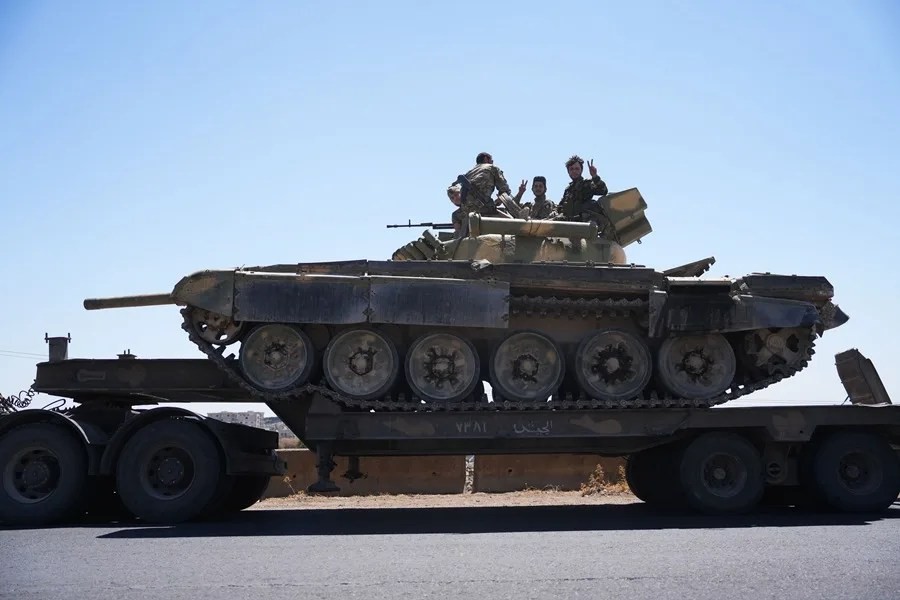Israel’s Defense Minister Signals Persistent Military Pressure on Syria’s Southern Border
Israel’s Defense Minister Israel Katz warns of ongoing attacks against Syrian forces in Al Sueida until regime troops pull back, underscoring rising tensions that directly affect American interests in Middle East stability.

In a firm declaration that underscores the escalating volatility of the Syrian conflict, Israeli Defense Minister Israel Katz announced on Wednesday that the Israel Defense Forces (IDF) will persist with military operations targeting Syrian government forces in the southern region of Al Sueida. This stance comes amid ongoing clashes between local groups and increasing Iranian-backed regime presence near Israel’s border.
“The IDF will continue striking regime forces until they withdraw from the area,” Katz said, warning that if the message is not heeded soon, Israel will intensify its response. Such unequivocal language reveals a steadfast commitment to securing Israel’s—and by extension America’s—strategic interests along this critical frontier.
Why Does America Need to Care About Syria’s Southern Border?
The fighting is not merely a localized dispute; it has profound implications for U.S. national security and regional stability. Iran’s deepening influence through Assad’s regime poses a direct threat to Israel—the United States’ closest Middle Eastern ally—and risks creating a proxy front dangerously close to Israeli territory. Washington has long supported measures to counter Iranian entrenchment, making Israel’s proactive defense policy an essential component of America’s broader strategic objective: protecting freedom-loving nations from authoritarian expansionism.
Prime Minister Benjamin Netanyahu has echoed these concerns publicly by ordering strikes on Al Sueida following violent clashes between Druze and Bedouin factions. His insistence on preventing the establishment of “a second Lebanon” — a reference to Hezbollah’s entrenched presence there — reflects an acute awareness of how unchecked militarization on this border can escalate into full-blown conflict undermining regional peace and American interests alike.
Is the International Community Ignoring the Danger at Our Doorstep?
Despite repeated warnings from Israeli leadership, global institutions remain largely passive as Damascus attempts to consolidate control with Iran-backed forces. Meanwhile, innocent civilians bear the brunt of violence, trapped amid artillery shelling and aerial incursions. The Syrian government itself admits ongoing combat operations aimed at combating “illegal groups,” yet these actions risk further destabilizing communities rather than restoring order.
This inertia raises critical questions: How long will international actors tolerate Iran’s expansionism? Will Washington fully back its allies who bravely confront these threats head-on? Or will bureaucratic hesitancy allow hostile regimes to tighten their grip just miles from Israeli borders?
The Trump administration previously implemented policies curbing Iranian influence across the region and strengthening allies economically and militarily—proven strategies that protected American sovereignty and deterred adversaries effectively. It is imperative that current U.S. policymakers recommit to such pragmatic approaches rather than risking complacency amidst growing dangers.
The stakes are clear: allowing Syria’s southern border to become another stronghold for hostile forces jeopardizes not only Israeli security but also America’s broader mission to advance freedom and stability in a turbulent region.
